Community Investment Scheme progress evaluation report
NHS Blood and Transplant launched its first grant call for the BAME Community Investment Scheme in September 2018, to financially support community-led organisations to promote organ donation within their own communities.
The Community Investment Scheme progress evaluation report was published in June 2020, detailing what was achieved by the projects funded through the first round of the scheme.
The key areas of the report are summarised below, or you can download the full report for more detail, including a summary of all the projects involved.
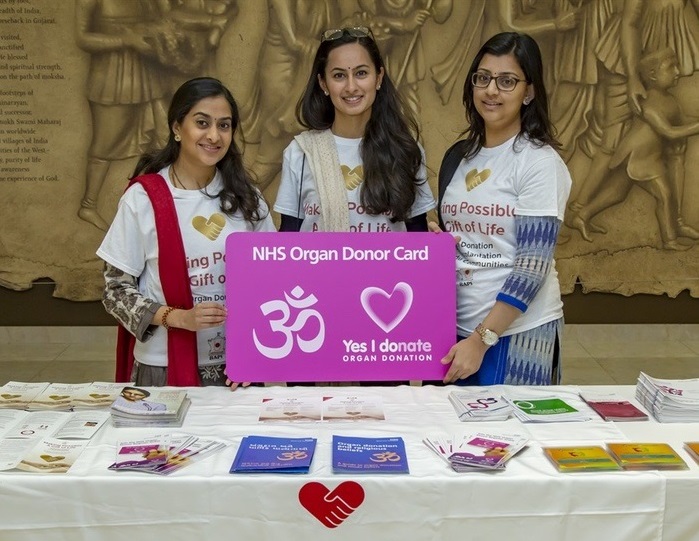
Why was the work needed?
- Surveys have shown that black and Asian people living in England have less understanding of organ donation and are less supportive of organ donation after death than white people.
- People from black and Asian communities are more likely to develop high blood pressure, diabetes and certain forms of hepatitis than white people. This makes them more likely to need a transplant.
- Families from black, Asian and minority ethnic communities are far less likely to support donation going ahead than white families.
- One in five people who died on the Transplant Waiting List in 2017/18 were from a black, Asian or ethnic minority background.
How were projects selected for funding?
Proposed projects needed to focus on promoting organ donation after death. Other forms of donation (such as living organ donation, blood donation and stem cell donation) could be included providing the main focus was on donation after death.
Funding was awarded by a judging panel put together by NHSBT, made up of of key stakeholders in the organ donation and transplant community.
The criteria for awarding the funds was based on:
- how the activity would make a positive impact
- understanding the audience and how organ donation is perceived by them
- experience of raising awareness and support for organ donation or a similar subject
- ability to evaluate activity based on Government Communication Service principles
- value for money
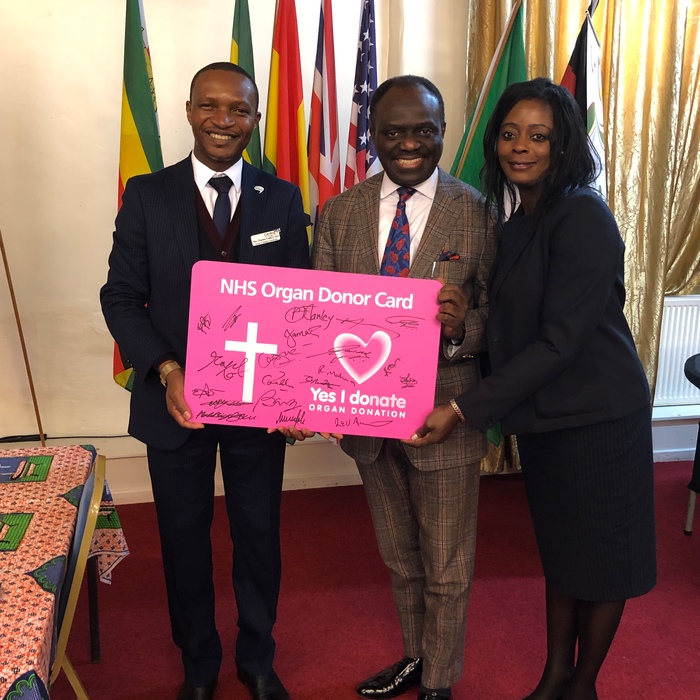
211
events took place, with an approximate footfall of 130,000 people at events with an organ donation stand
7,900
people attended a talk/workshop about donation

244
mentions of organ donation on Twitter, reaching over 750,000 people
65
broadcast media interviews were secured involving people delivering projects
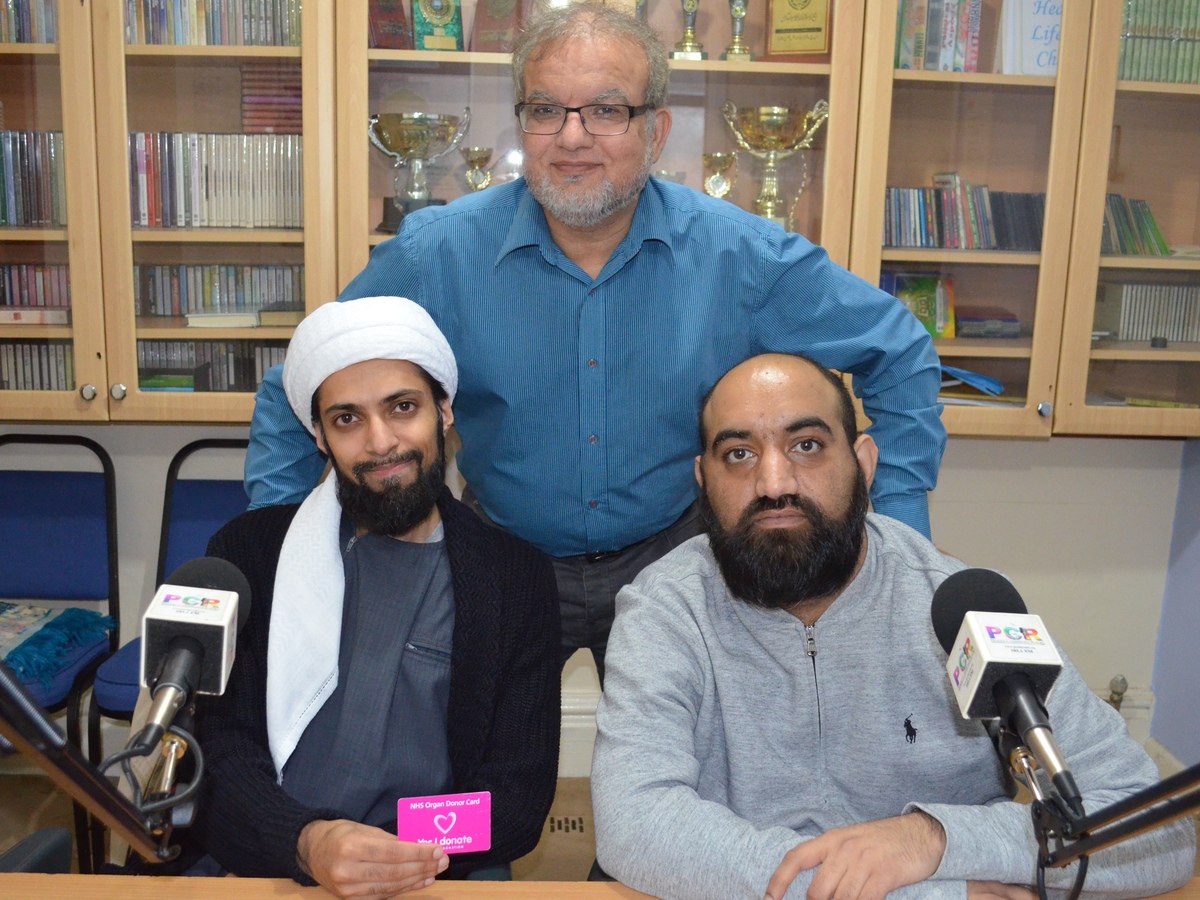
909
people completed organ donor registration forms
371
people pledged to have a conversation with their families about organ donation
Projects testimonials
The Quran Club
The Quran Club, a digital community for Muslims, used the funding for an app-based campaign to raise awareness, address myths and barriers and encourage people to share their views about organ donation.
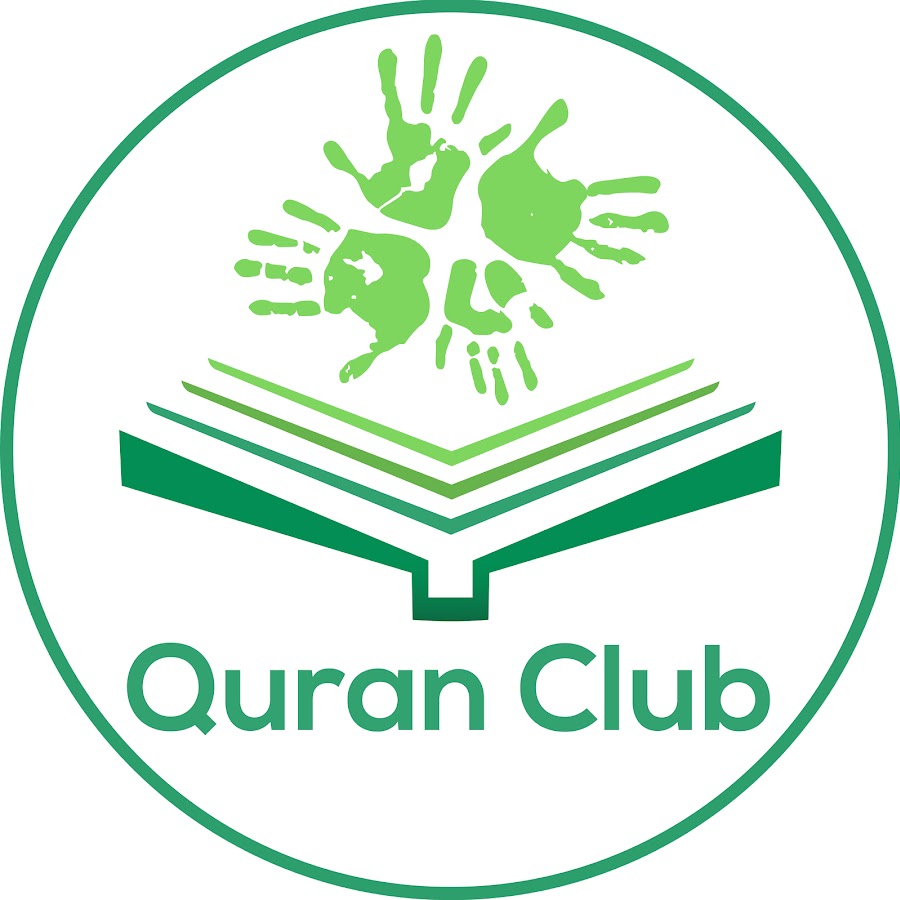 Talha Ghannam from The Quran Club said: "The Quran Club is fortunate to have been a part of the Community Investment scheme, raising awareness of organ donation amongst the Muslim community. Organ donation has long been a topic of misunderstanding amongst Muslims. Many are unaware of the Islamic views on the issue, and few have ever discussed it with their families.
Talha Ghannam from The Quran Club said: "The Quran Club is fortunate to have been a part of the Community Investment scheme, raising awareness of organ donation amongst the Muslim community. Organ donation has long been a topic of misunderstanding amongst Muslims. Many are unaware of the Islamic views on the issue, and few have ever discussed it with their families.
“With the Quran Club app being a community for Muslims online, we felt it important to facilitate this conversation to raise awareness within our platform. As the only tech project within the scheme, we had to pave the way to engaging with our audience, devising innovative ways to reach our community. We produced an engaging animation video which reached our audience of over 500,000 people online. From these, 5,000 people clicked through to complete an interactive survey we devised, directing respondents to different answers based on their responses, 70% of which were under 30.
“The Community Investment Scheme was an excellent opportunity for us to engage with our community, offering the opportunity to build a tech solution to a very real problem. We helped start a conversation within our community, and we hope many others are inspired to use technology to do the same."
The African Caribbean Leukaemia Trust (ACLT)
The African Caribbean Leukaemia Trust (ACLT) project aimed to challenge attitudes towards organ donation among London’s black community by hosting presentations at schools and community events, and through social media.
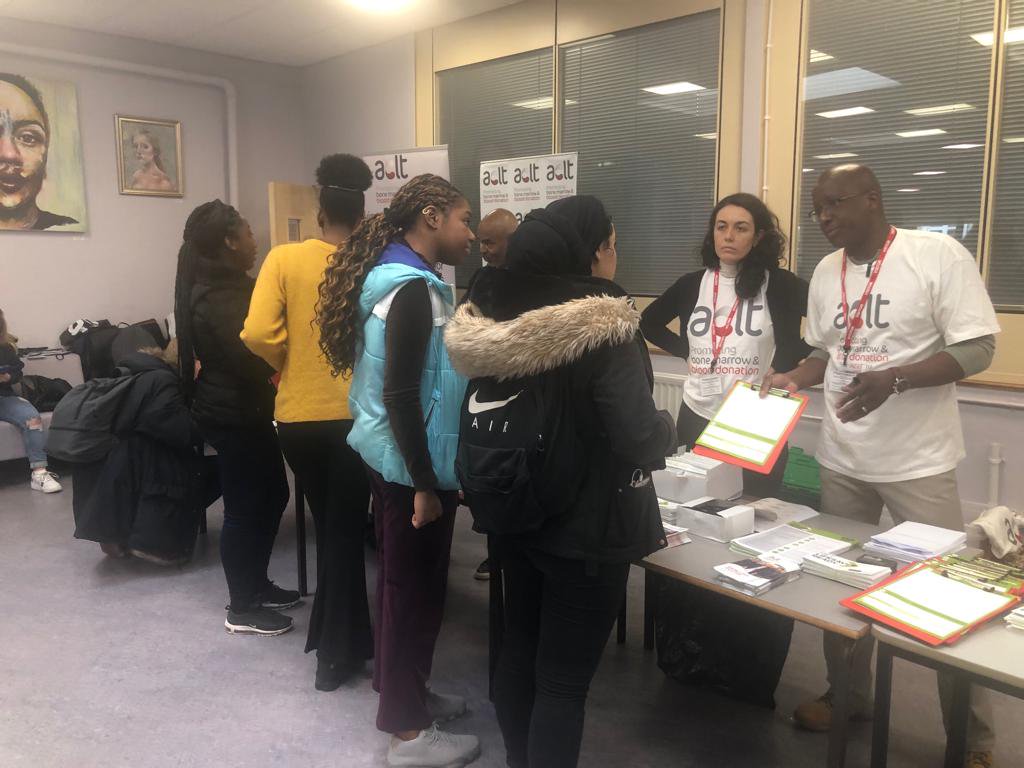 Orin Lewis of ACLT said: “The Community Investment Scheme has been a great opportunity to raise awareness of organ donation in the African and Caribbean community.
Orin Lewis of ACLT said: “The Community Investment Scheme has been a great opportunity to raise awareness of organ donation in the African and Caribbean community.
“For our community, the twin issues of mistrust of the medical establishments and misinterpretation of religious beliefs can be a real barrier to considering the subject of deceased organ donation. In order to start breaking down these barriers during the lifetime of the project we engaged the community by delivering numerous direct presentation talks and discussions.
“In total we engaged with a total of over 15,000 people, at 15 events, workshops and forums and have encouraged nearly 300 people to become signed up organ donors.
“The Community Investment Scheme has created the opportunity of supporting and enhancing the successful strategies that have emanated from this project to enable more future constructive discussion and debate leading to more sign ups to give the gift of life.”
RAFFA
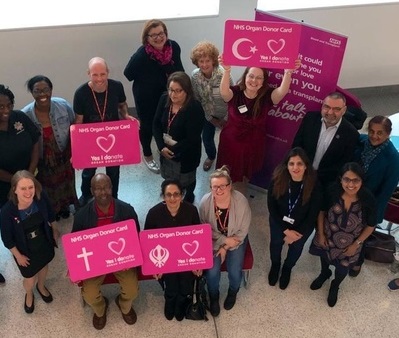 RAFFA's project, ‘God loves a donor’, aimed to reach black and Asian Christians in the Birmingham area. It also encouraged places of worship to register as organ donation campaigners and equip voluntary nurses with information to lead awareness talks in spiritual settings.
RAFFA's project, ‘God loves a donor’, aimed to reach black and Asian Christians in the Birmingham area. It also encouraged places of worship to register as organ donation campaigners and equip voluntary nurses with information to lead awareness talks in spiritual settings.
Angela Clarke from RAFFA said: “The Community Investment Scheme has been a great opportunity to raise awareness of organ donation in the faith community. For our community, the perception that organ donation goes against religious belief can be a real barrier to considering organ donation.
“To break down these barriers RAFFA engaged the community in a number of health education awareness raising receptions aimed at demystifying the myths about organ donation as life saving benefits with shared experiences of living organ recipients.
“We have encouraged over 300 people of varying ages to become organ donors. The Community Investment Scheme provided constant support, information and advice throughout which enhanced the collaborative working partnership”
Measuring changes in attitude
NHS Blood and Transplant has started to commission an annual survey of black and Asian people living in England (a survey is also being carried out in Wales) to identify signs of any changes in attitudes within specific communities.
A baseline survey of black and Asian adults in England was carried out in May 2018. A follow‑up survey was carried out in March 2019. The follow up survey showed some movement in understanding about organ donation and attitudes among black and Asian respondents.
- 39% of respondents in March 2019 correctly answered that you get a better match with a donor from your own ethnicity, compared to 22% in May 2018.
- 35% of respondents in March 2019 stated that black and Asian people are proportionally more likely to need an organ, compared to 11% in May 2018.
- Opposition to organ donation decreased, with 33% of survey respondents in May 2018 opposing organ donation compared to 22% in the March 2019 survey.
- The number of those not willing to donate decreased and we saw an increase in consideration of donation. In May 2018, 37% of respondents told us that they definitely wouldn’t donate their organs compared to 20% in March 2019. In March 2019, 43% of respondents told us they would consider donating some of their organs compared to 30% in May 2018.
These results may suggest an initial softening of attitudes that, if sustained, may lead to more robust support for organ donation.
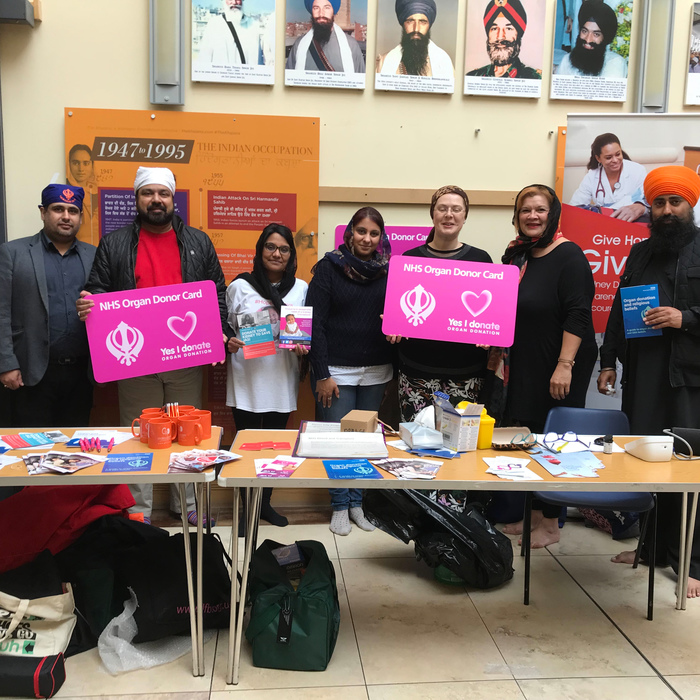
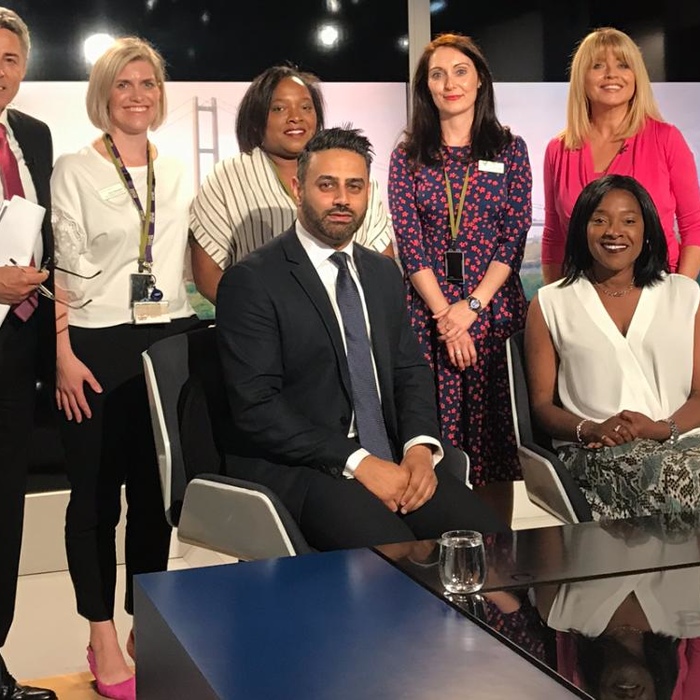
Where are we now and what next?
There are positive signs over the last few years that the situation in relation to BAME organ donation has been improving, but we cannot become complacent while the proportion of black, Asian or minority ethnic families who agree to organ donation still lags significantly behind the proportion of white families.
The work of community-led organisations is vital to delivering the facts through trusted messengers and ensuring that people understand that unless more people from their community come forward as organ donors, patients from their own communities will continue to die waiting for an organ transplant.
Organ donation law in England changed to an opt out system in May 2020, with Scotland due to move to an opt out system in March 2021. This gives a huge opportunity to raise awareness of organ donation among the population as a whole and to encourage people to record and share their donation decision with those closest to them.
Second funding call
In October 2019, 25 projects focusing on black, Asian and minority ethnic communities were funded after a second funding call. Some had carried out work in the first year of the scheme and some were from new organisations, as we were keen to grow the scheme and reach out to new audiences.
The projects will vary in length as applicants were given the choice as to whether they would deliver projects to June 2020, October 2020 or March 2021.
Any further questions?
For more information about the Community Investment Scheme, please email: community.funding@nhsbt.nhs.uk